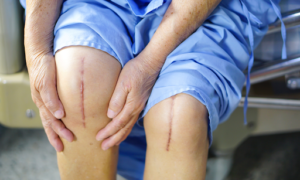Endometrial hyperplasia means the endometrium lining of your uterus becomes too thick. People with endometrial hyperplasia produce too much estrogen and not enough progesterone. There are two types of endometrial hyperplasia. One is Simple or complex endometrial hyperplasia during which endometrial hyperplasia has normal-looking cells that don’t become cancerous, and other conditions may improve without treatment. Another is Complex endometrial hyperplasia, which is a type of endometrial hyperplasia that has a higher chance of becoming cancer without treatment, and the risk of endometrial or uterine cancer increases.
What are the symptoms of Endometrial Hyperplasia?
Common symptoms of Endometrial hyperplasia are short menstrual cycle, heavy menstrual bleeding, bleeding after menopause, amenorrhea, or abnormal bleeding. If you are facing such symptoms then consult Top best infertility doctor in Lucknow for a successful pregnancy because these symptoms may affect your parenthood journey.
What are the Common Causes of Endometrial Hyperplasia?
The most common cause of endometrial hyperplasia is too much production of estrogen and less progesterone. These hormones play an important role in menstruation and pregnancy. During ovulation progesterone prepares your uterus for pregnancy. Whereas estrogen thickens your endometrium for embryo implantation. If conception doesn’t occur, progesterone level decreases. The progesterone drop triggers your uterus to shed its lining during your menstrual period. But, if a woman is facing endometrial hyperplasia then the uterus doesn’t shed its endometrial lining.
What are the Risk Factors for Endometrial Hyperplasia?
The risk of endometrial hyperplasia increases if you are facing diabetes, ovarian cancer, colon cancer, uterine cancer, breast cancer, gallbladder issue, Early age for menstruation, or late onset of menopause, PCOS, thyroid disease, obesity, autoimmune disease, absent menstruation, and habit of smoking.
How can Endometrial Hyperplasia be diagnosed?
To diagnose endometrial hyperplasia, transvaginal ultrasound may be advised by your doctor. During transvaginal ultrasound, sound waves are used to produce images of your uterus and images can show if your uterine lining is too thick. Another is endometrial biopsy removes tissue samples from your uterine lining. Hysteroscopy is also a process that uses a thin, lighted tool called a hysteroscope to examine your cervix and look inside your uterus.
What are the Treatments for Endometrial Hyperplasia?
There are different treatments for endometrial hyperplasia like oral progesterone therapy, an intrauterine device containing progesterone, vaginal cream, Hysterectomy, or medications that may be advised by your doctor. On the other hand, if you are trying to conceive then you can undergo fertility treatment after consulting the Best IVF doctor in Lucknow.
How can you Prevent Endometrial Hyperplasia?
You can prevent endometrial hyperplasia if you use progesterone along with estrogen after menopause, consider taking birth control pills with estrogen and progestin, quit smoking maintain the right body weight, and eat a healthy diet. A typical endometrial hyperplasia can lead to endometrial or uterine cancer. That’s why its diagnosis is necessary.
Conclusion
Endometrial hyperplasia means the endometrium lining of your uterus becomes too thick. If a woman is facing endometrial hyperplasia then the uterus doesn’t shed its endometrial lining. The risk of endometrial hyperplasia increases if you are facing diabetes, ovarian cancer, colon cancer, uterine cancer, breast cancer, gallbladder issues, late onset of menopause, PCOS, obesity, autoimmune disease, absent menstruation, and habit of smoking.
To diagnose endometrial hyperplasia, transvaginal ultrasound may be advised by your doctor. Its treatments are oral progesterone therapy, an intrauterine device containing progesterone, vaginal cream, and Hysterectomy. Well, the risk of developing cancer ranges anywhere from 8% to 30% depending on the type of endometrial hyperplasia you are dealing with. To prevent this condition you can quit smoking maintain the right body weight, and eat a healthy diet.





